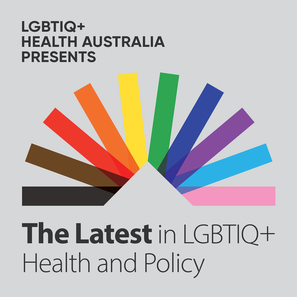 It was good to share recently on The Latest in LGBTIQ+ Health and Policy - a podcast that brings the health and wellbeing hot topic discussions that matter to LGBTIQ+ people: Our conversation explored the intersection between faith and LGBTQ+ community, the changes happening within the church, overcoming barriers as a trans woman, and my 30 year relationship with wife Penny.' This podcast was produced by JOY Media – Australia’s Rainbow Community Media Organisation. For more information about JOYs services, visit joy.org.au/services Podcast: Play in new window | Download (Duration: 25:16 — 34.7MB) Subscribe or Follow Us: Apple Podcasts | Google Podcasts | Spotify | RSS
0 Comments
Lovely to light a candle from among my mother’s treasures today - the word summing up how I’ve always seen the heart of her being and the life she share with my father, for whom love and just dealings were always gifts of his soul: love and laugher together. I wrote a reflection for the funeral at St Thomas' Market Rasen (see here) and was grateful to be given the strength to deliver it.
a reflection on the journey to genuine 'inclusion' for the Diversity & Inclusion Council of Uniting NSW/ACT
Thank you so much for the opportunity of sharing with you today. Let me first acknowledge the Gadigal peoples of the land from which I speak, and their elders past, present and emerging. I would also like to express my thanks for the work Uniting is already doing in terms of diversity and inclusion, including the vital encouragement this is to myself personally. For genuine visibility of our human diversity is so critical and enriching, as I know from my own experience and the huge number of people who contact me, from all kinds of places. joyfully receiving gifts One of the things I have learned from First Nations peoples is the importance of genuineness of spirit and intent. Back in 1986 in Alice Springs, Pope John Paul II put this well in sharing with Aboriginal and Torres Strait Islander peoples. ‘Until your gifts have been offered’, he said, ‘and joyfully received, the Church in Australia will not be that which Jesus Christ wants to see.’ That challenging truth remains central not only to the Church, but to all parts of Australian life. Until First Nations’ gifts have been fully offered, and joyfully received, with justice, then we will never be the country we can be. That must be the underlying theme of all we do in terms of diversity and inclusion. Yet those words apply more broadly, don’t they? Until the gifts of Asian, Pacific Islander, Middle Eastern, African, LGBTQ+ people, and all kinds of Australians have been offered, and – crucially - ‘joyfully received’, then we will not be what we can be. ‘Joyfully’ is a key adjective. What spirit and intent do we really have? If we approach inclusion mainly as an obligation (politically correct or otherwise), we will have missed the point. For one thing, anyone feels more likely to offer their gifts if there is likely to be a joyful reception. We will never maximise the capacity of any organisation, whether a church, a nation, or Uniting, if we do not joyfully embrace the gifts we are offered. What an opportunity we have as we emerge from, hopefully, the worst of what COVID-19 has done to expose the divisions and distinctions of wealth and power among us in Australia! To build back best, fully, and joyfully, enabling diversity and inclusion is vital. The character of our intent and its spirit is crucial. weak inclusion - as a noun In my experience, ‘inclusion’ can be a very weasel word, covering many continuing sins and PR appearances. Organisations have at least three approaches. The first is what I would call ‘weak’ inclusion. It is better than obvious exclusion but essentially about degrees of permission to belong. It is like a noun: it is somewhat fixed, concerned with quotas and boundaries, but really still involving social distancing rather than engagement. At times and in places, the Uniting Church exercises this kind of inclusion. You can belong as a minority, but are you really honoured, engaged, and joyfully received? That too is where many First Nations people were in Anglican circles in Southern Queensland, including in Anglicare, until we began our Reconciliation Action Plan a few years ago. medium inclusion - as an adjective Secondly, there are ‘medium’ approaches to inclusion. This is what I have experienced in moving into Uniting Church ministry. It involves a genuine welcome, with some affirmation, openness to involvement, and certainly much kindness. Whereas ‘weak’ inclusion is mainly being allowed to the table, this might even include being at the head of the table. Other than Anglo ethnicities, and LGTBQ+ and other networks are also taken with some seriousness. Inclusion becomes more like an adjective than a noun – it is about being inclusive, more dynamic than simply inclusion. It is where the Reconciliation Action Plan was in the Anglican Church Southern Queensland when I left, and maybe, where Uniting is right now. It is, however, only a happier, but not yet fully joyful stage. strong inclusion - as a verb A third stage of inclusion has a deeper spirit and intent. This ’strong’ stage is not about even genuine welcome, but about revealing the gifts of all. It includes affirmation but is really about celebration, led by everyone in our diversity when we are all truly empowered. It is about inclusion as a verb: about active practice day by day; including like Uniting, as a dynamic community of living and belonging. It is also wonderful for any organisation. For we no longer have to work hard at showing we are diverse and inclusive. We demonstrably are. It is our very DNA. Others see it, which also saves many promotional expenses! The Uniting Church aspires to this, and at times manages it. The most visible sign is the Covenant with Uniting Aboriginal & Islander Congress - although, even there, questions remain, including about resourcing and how voices are actually heard and make a difference. Yet the Uniting Church as a whole is not there yet. I sense however that Uniting can move into at least some kind of ‘stronger’ inclusion, where all levels of staff and operations see it as their own work. That is another major shift, but ultimately, as it becomes more natural, it in fact requires less work from advocates and leadership than ‘weak’ and ‘medium’ inclusion – for it belongs to everyone, when everyone truly belongs. True including thus also leads on to expansiveness. sea-change We live in the tag end of some frankly rubbish times, when the very dignity of some human beings has been under question. We have major policies of exclusion in Australia, including towards First Nations claims for justice, towards refugees, some migrants and the poor. Currently, we also have hurtful bills of religious discrimination in federal and state parliaments. Yet my belief is that these are rotten but passing times. I see the journey towards Australian diversity and inclusion as like a sea-change. The waves come in at different speeds. Sometimes they rise high: as with the 1967 Referendum, the Apology to the Stolen Generations, Marriage Equality, and so forth. At times they fade away and we think the tide has gone. Yet it will assuredly return. The key thing is to hold faith and make ready for the next big wave of Australian diversity and inclusion. It will come, and those who are prepared can surf it. Others who do not prepare will flounder. For there is, let’s face it, no vibrant and really sustainable future for Australia without renewing our multicultural identity. Uniting is well placed to seize that time when it comes, if it continues to move more deeply into diversity and inclusion. So, May God bless us all in this exciting journey! Penny and I are feeling very blessed after renewing our marriage vows this week in St John's (Anglican) Cathedral in Brisbane - on our 35th wedding anniversary. We had intended to mark this occasion by beginning several months long leave overseas. COVID-19 put an end to that. However we felt powerfully drawn to mark this point in our lives, particularly after this year completing the main elements of my gender affirmation journey. It also gave us an opportunity to celebrate a 'queer' marriage which some of our co-religionists say is impossible (!) but which we believe is a lovely gift for the renewal both of marriage and also of human relationships with our wider creation. For, as I have written elsewhere (see here for example), a deeper wrestling with Judaeo-Christian tradition leads us into a much more profound and life-giving understanding of marriage and God's shalom...
Above is a prayer I have written to mark the annual Coming of the Light festival (1 July) and for use of other occasions. It is shaped with thanks to Torres Strait Islanders with whom I have walked/continue to walk, with appreciation of their deep faith, spirituality and commitment to justice and diversity. Living strongly in my heart is also the visit, with NSW Ecumenical Council friends, which I paid several years ago to the Torres Strait. Torres Strait Islanders are often little known to many Australians, never mind the rest of the world, and literally and metaphorically missed off maps of the nation. Yet their history, culture and life today are rich and life-giving. They also continue to challenge us all to face up to the continuing effects of colonialism, injustice and climate change (which impacts on the Torres Strait so strongly). I am particularly grateful to walk paths of just Reconciliation with Aunty Rose Elu and the non-geographical Anglican Torres Strait Islander parish in Brisbane. May this year's Coming of the Light further enrich the people of the Torres Strait and deepen our solidarity.
This photo was taken, earlier this year, from my bed of healing in a delightful unit in St Kilda (Melbourne). I had just had genital reconstruction surgery, thanks to the excellent skills of Andy Ives and his wonderful team at the nearby Masada Hospital, and I was in my first stages of recovery 'at home'. When the night's darkness began to lift, the new light of day brought this beautiful dawn. My eyes opened to the glorious gift of nature's renewal, and, with it, to the wonder of human participation in the joy of existence and work of re-creation. For across the sky, just above the treeline, floated a series of hot air balloons, beautiful expressions of fresh lightness and delight (you may just be able to spot two of them in the photo - as small circles to the left of the centre of the light, adjacent to the word alleluia). At the same time, the sunrise further gorgeously illuminated the cranes working on the building of the exciting development of the Victorian Pride Centre, visible a couple of streets away across the rooftops.
This experience was, as might be imagined, for me, a vision and harbinger of resurrection. It did not take away the struggles I was going through. The surgery itself was very successful, and there was not a subsequent shred of regret - so much the reverse, with deeper inner peace. Yet the days ahead also saw pain and discomfort, particularly with an awkward infection and a slow completion of healing due to sensitive skin (part of the joy of being a particular kind of natural redhead?!). The wider struggles of gender & sexually diverse people are also hardly over, despite such welcome living symbols of resurrection as the Pride Centre. Yet that dawn was not only a moment of special grace, but also a deep sign of hope and loving transformation, not simply for myself but for so much else about which I care. For resurrection, at least in this life and time space, is always betwixt and between... 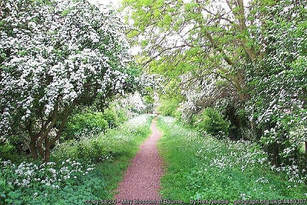 May blossom at Bourne, Lincolnshire (close to my childhood home) cc-by-sa/2.0 - © Rex Needle - geograph.org.uk/p/4480307 May blossom at Bourne, Lincolnshire (close to my childhood home) cc-by-sa/2.0 - © Rex Needle - geograph.org.uk/p/4480307 I've always loved the first of May. Maybe it is the Celtic and European blood in me, or the feminine, or the longing for justice and the appreciation of those who forged the struggle, or the family birthdays which fall this month, or simply the rising sap of life and creation itself - all topped off by those champagne breakfasts I enjoyed on this day in Oxford - but I adore it. Of course it 'works' so much better in the northern hemisphere - 'oh to be in Paris now that Spring is here', as the old song has it? (and indeed I've been blessed to be in that beautiful city of liberty in May on a number of occasions). Yet it is such a gorgeous symbolic celebration of veriditas - greening - in so many senses of the word. It rings for me, sings to me, dances in me: with joy, with hope, with transformation... 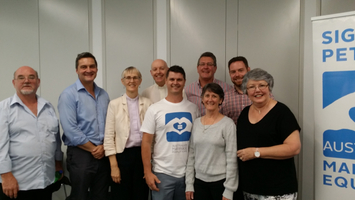 'When someone starts talking about principles, watch your back!' This was one of many 'bon mots' I learned from Geoff Garner, my delightful supervising vicar when I was a curate in the East End of London. Partly what he was saying was that when human beings become agitated, for or against a controversial proposal, humanity and genuine love go out the window. So called 'principles' and 'values' become used as weapons: at best providing insulation from genuine engagement, or, often, simply being used to harm others. Geoff himself knew well to his cost how this worked. As a founding member of LGCM (originally the Gay Christian Movement), as an inter-faith adviser to the Bishop of London, and in the open and humane way he ministered with others, he was frequently a target of others' internal difficulties and defensiveness. For Geoff, and for me, this is far from how Jesus lived, taught and acted. Last weekend I spoke at the Toowoomba Marriage Equality event, sharing my own, positive, perspectives on what is too often an area of Christian 'principled' resistance and denial (click here for my address on that occasion). At the meeting, I was once more struck by the qualities of love, joy, and kindness so many LGBTI+ people have for one another and others. Since then, I have once more been overwhelmed by the generosity and warmth of fellow marriage equality supporters with whom I have corresponded. This, I believe, reflects the immense wellspring of love within the LGBTI+ community which still longs for full release. It is a powerful contrast with the spirit of some Christian circles which persist in turning their backs on this wonderful source of renewal for us all. Most certainly, there is also Christian discomfort about marriage equality which is neither bigoted nor defensively armed with principles. One of my close Anglican colleagues for example is wary of marriage equality legislation because they feel some advocates are themselves equipped with principles (such as exaggerated 'rights' discourses) which they can wield like aggressive weapons. Perhaps, but I saw none of this last weekend in the keynote addresses of Marriage Equality leaders such as Shelley Argent and Rodney Croome. Instead they spoke with humour and humility about those things which touch all our lives: love and family, pain and joy, being valued, recognition and relationships. These are not abstract principles but the realities of life which bind us together. One Christian leader who has upbraided me since last weekend accuses me, among other things, of being infected by humanism. It is one accusation - unlike many others - which, with qualifications, I am happy to own. For a healthy Christian humanism is surely an antidote to picking up the weapons of principle. Like my mentor Geoff Garner, I see in Jesus the embodiment of the humane as well as the the holy, someone who stood not on principle but in the power of love: in that sense being both fully human as well as fully revealing of the mystery of divine love which transcends all our human differences (male and female, Jew and Gentile, and all the rest - including queer and straight). Julia Baird, in a recent article, reflects, in a typically incisive and balanced manner, on the challenges of discerning what is 'free' speech and what is 'hate' speech in the marriage equality debate. My sense is that part of the answer is in returning with prayerful discernment to the Christian injunction about 'speaking the truth in love' (Ephesians 4.15). Too often this can mean Christian justification for simply being mean, aggressive, demeaning, or worse. When I hear or read the words 'I just want to say this to you in Christian love', I am also instinctively tempted to duck for cover, just like Geoff Garner. It is hardly that I do not care about truth and truth-speaking. Part of my problem is that parts of the Church do not really want to explore truth and sometimes actively seek to silence the truths of others. No, the heart of the matter is what we mean by love. Is it truly an openness to genuine truth-seeking and the fresh insights of the Holy Spirit, or is it only a cover for ego and group fear and defensiveness? Whatever our views on marriage equality - and, sadly, the debate is likely to go on in the Church as a whole for ages after it is settled in Australia in law - when we come to 'speaking the truth in love', perhaps we need to spend more time on that last word love. It is too easy to leap to principle without love. For those of us who share in pastoral care, the ability to share a prophetic word is also important. Yet we need to be kind and compassionate in how, as well as what we say. For me, much maligned 'political correctness' often seems really to amount to no more than being polite and respectful to others - precisely the opposite of the Pharisaism, wielding principles like weapons, which Jesus so abhorred and transcended. We are not all agreed, not will we be, with or without a plebiscite. Most Christians however, for and against, genuinely seek to honour God and our conscience. So let us seek the truth indeed, but let us be gentle with it. 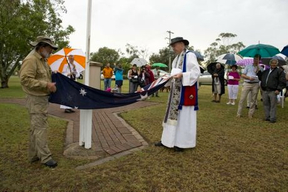 I am not a great fan of what is called 'the pathetic fallacy', particularly in films when the rain, for example, comes down when times turn sad and miserable. There are some special occasions however when these things do seem to come together. A few years ago, this happened before the first Five Lands Walk on the NSW Central Coast. Some of us gathered on the beach for a special dawn ceremony before the main event. As one of our Aboriginal elders finished singing the final song whales appeared off shore, seemingly beaching gloriously in the joy of that splendid morning of spiritual renewal. The flagwashing we shared on Australia Day was similar moving occasion. Earlier that afternoon, on a hot day, I attended the solidarity event after the fire at the Garden City mosque. As we drove out to Acland the clouds gathered and, as we arrived, rain began. In that place of so much political and environmental conflict, it felt as if creation itself was weeping with us for the failings of our nation and world and that, like gentle tears, it was washing and healing us as we prayed together. It was a beautiful event. The liturgy touched many hearts. It lifted the spirits, not least of the Aboriginal elders present and of Glenn Beutel (who so gracisously welcomed us and who so ably the practicalities of the flag washing).  The great song of Jesus’ mother in the Bible is often known by its Latin title of Magnificat. This means ‘let magnify’ or ‘let thanks and glory be given’. It is the cry of Mary when she realises that she is pregnant and is full – or will soon be full - of the love of God in human form (that is the boy-child we know as Jesus). With all the joy and excitement and anticipation she feels, Mary is crying out as loud as she can – let thanks and glory be given, let life come to birth. Mary’s whole heart, her whole being, is caught up in thanksgiving and in the process of bringing new life into being. Can we join in with her? Advent – the immediate weeks before Christmas Day – is a great time for renewing the spirit of thanksgiving and for pondering on what is coming to birth, or might come to birth, in each of us and in our broken world. What gifts do we want to thank God for? What joyful things can we see in our lives and/or in the world around us? What new things is God doing in us that we want to bring into being? For each of us is called to sing, and live, our Magnificat. Mary's song is just one more reason why we have renewed our Season of Gratefulness initiative for Advent this year. This is not blind to the pain and struggles of our lives and world. Rather this is also about justice, seeking to rejoice, like Mary, in the presence of that Love which has brought light out of darkness in the past, and will again: not least, as we, if we would but know it, can ourselves be pregnant with the Spirit of God. My soul glorifies the Lord, my spirit rejoices in God, my Saviour. He looks on his servant in her lowliness; henceforth all ages will call me blessed. The Almighty works marvels for me. Holy his name! His mercy is from age to age, on those who fear him. He puts forth his arm in strength and scatters the proud-hearted. He casts the mighty from their thrones and raises the lowly. He fills the starving with good things, sends the rich away empty. He protects Israel, his servant, remembering his mercy, the mercy promised to our forebears, to Abraham and his descendants for ever. |
AuthorJo Inkpin is an Anglican priest serving as Minister of Pitt St Uniting Church in Sydney, a trans woman, theologian & justice activist. These are some of my reflections on life, spirit, and the search for peace, justice & sustainable creation. Archives
July 2024
Categories
All
|
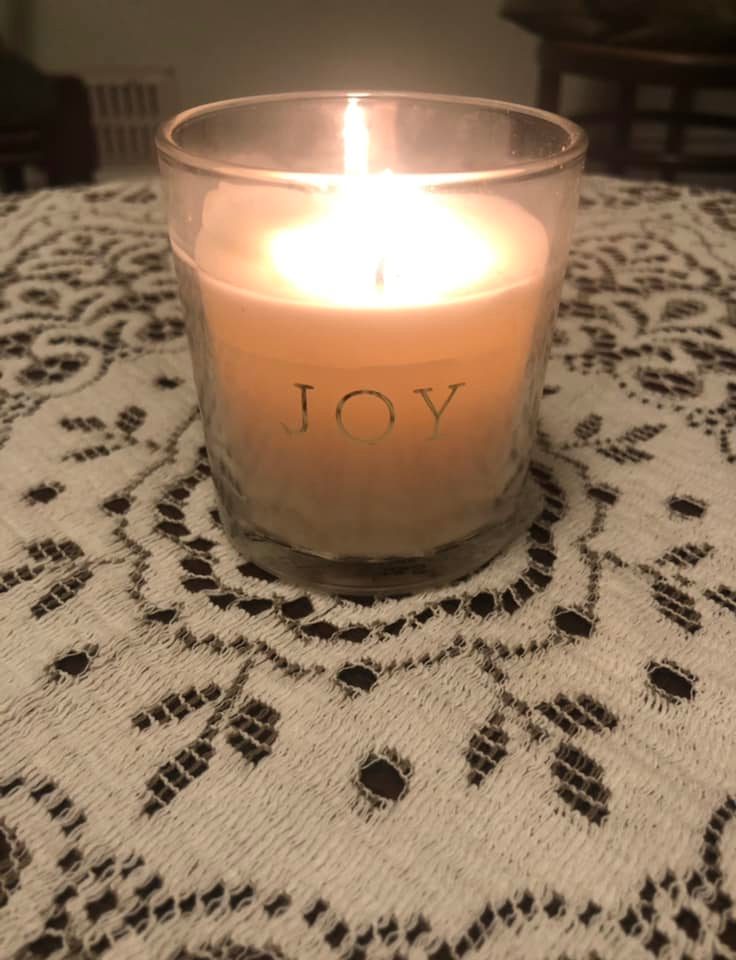
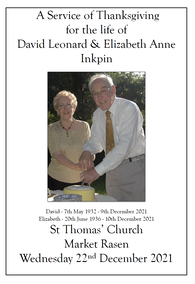
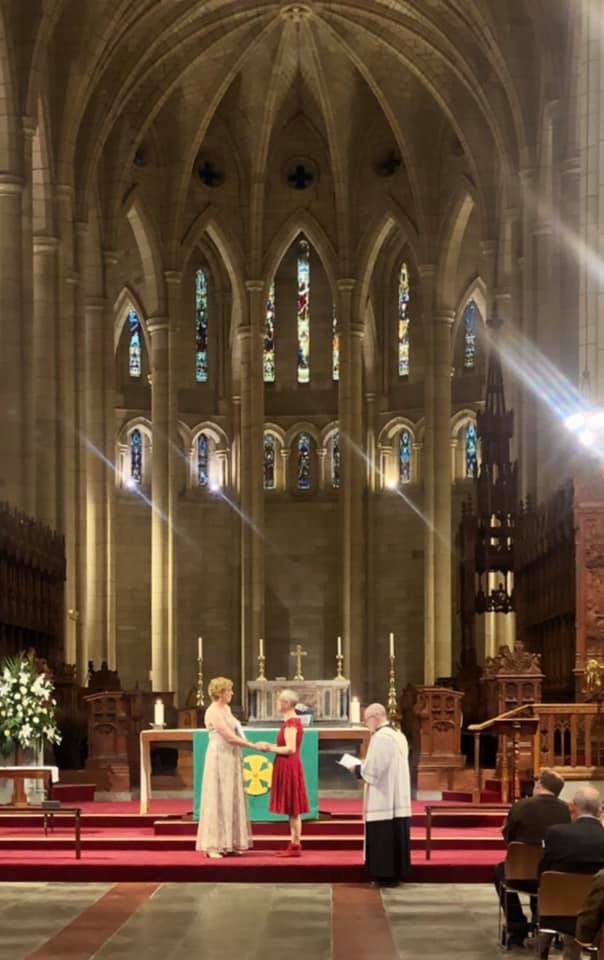
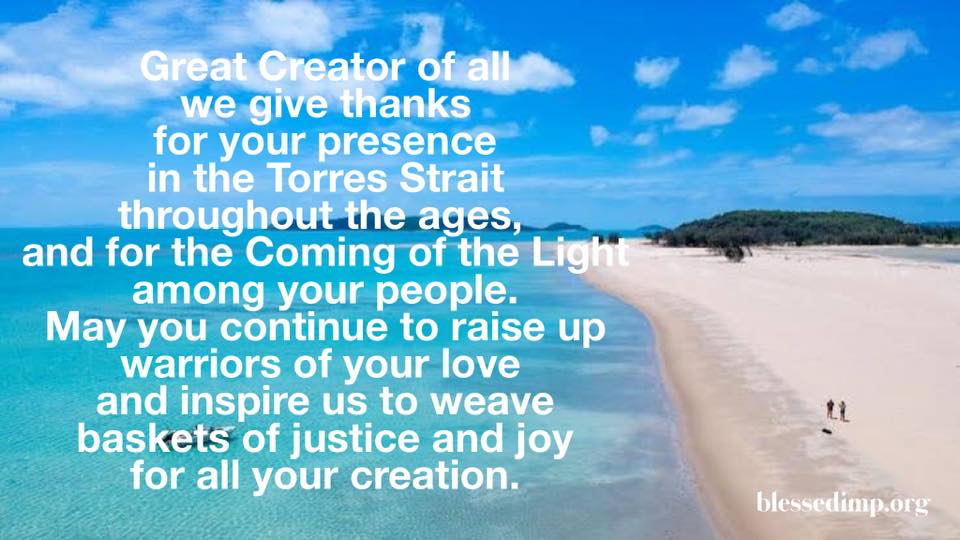
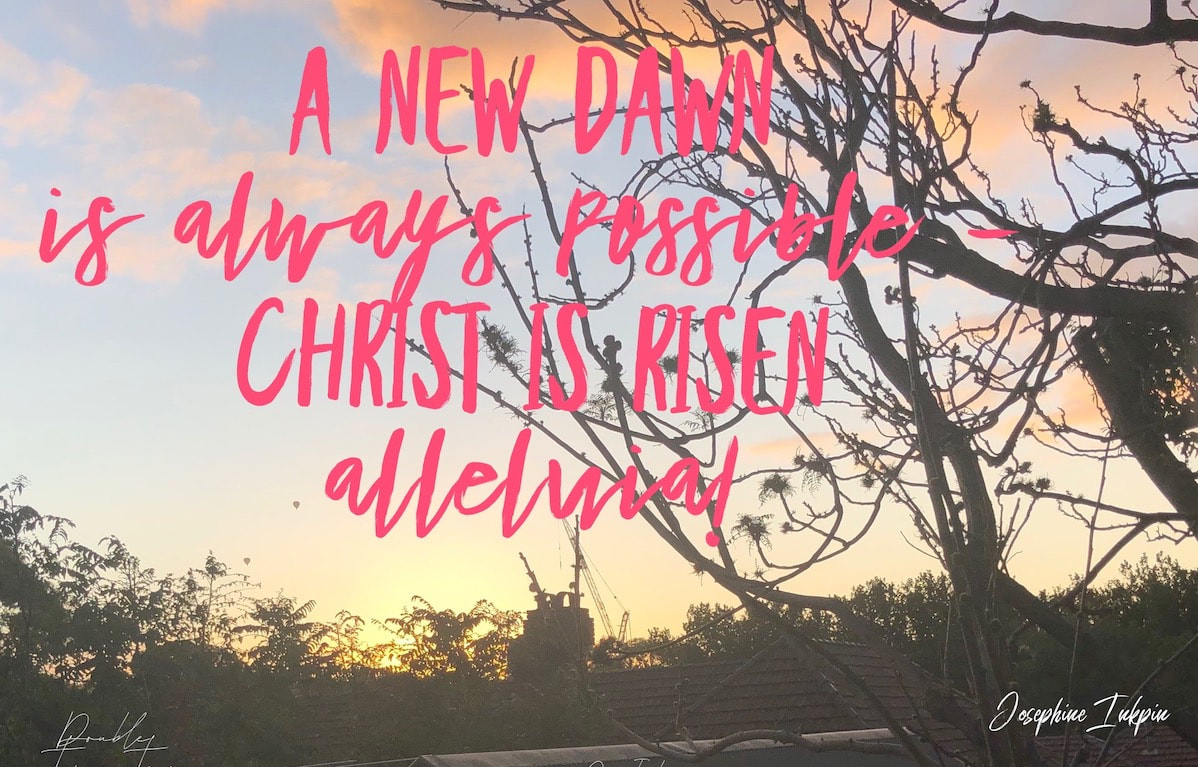
 RSS Feed
RSS Feed